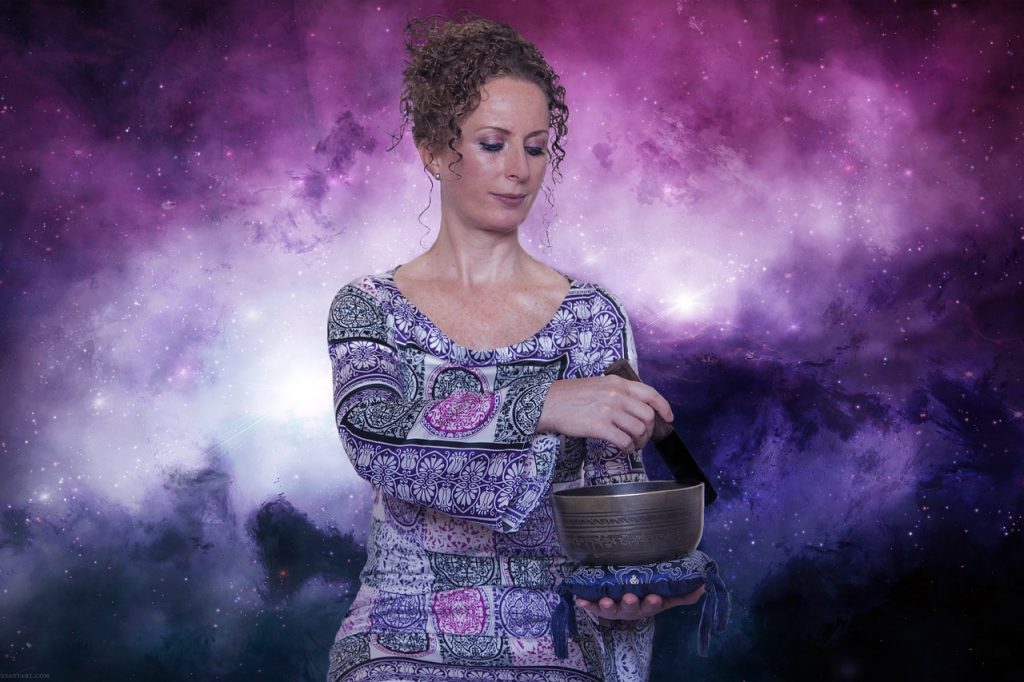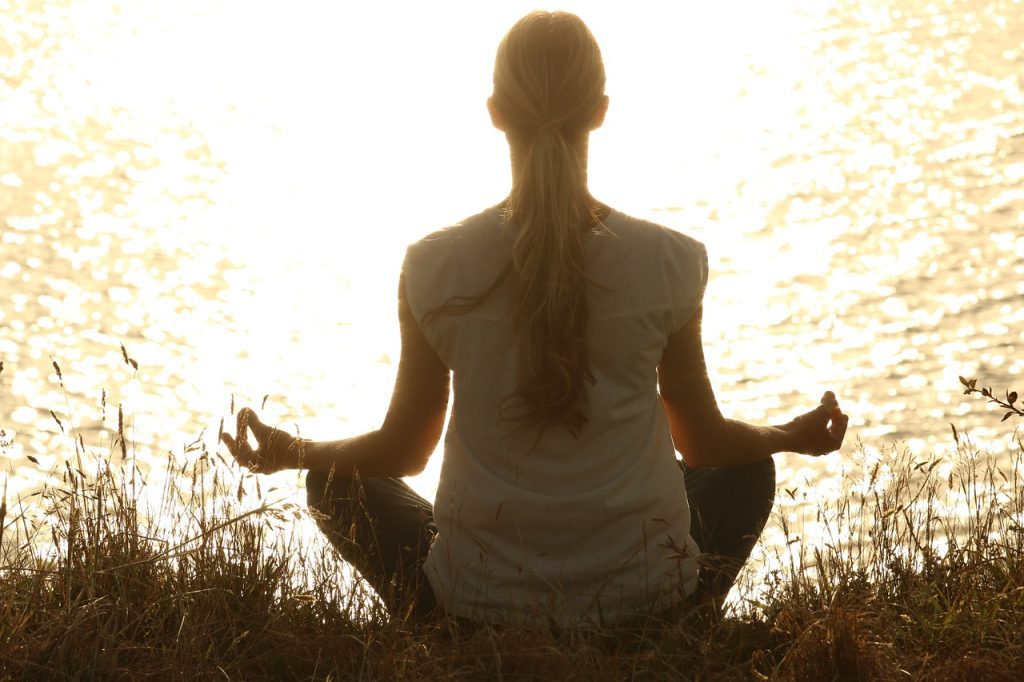Self-regulation is the ability to manage one’s thoughts, emotions, and behaviour in a way that promotes well-being and positive outcomes. It’s a critical skill for success in both personal and professional life, and it’s something that everyone can learn and develop. However, self-regulation can be challenging, especially in today’s fast-paced and constantly changing world. In this article, we’ll discuss some strategies for practising self-regulation and improving your ability to manage your thoughts, emotions, and behaviour.
1. Self-Regulation and Developing Self-Awareness

The first step in practising self-regulation is to develop self-awareness. Self-awareness is the ability to recognize and understand your own thoughts, emotions, and behaviour. It’s an essential skill for personal growth and development, as well as for building healthy relationships and achieving success in your personal and professional life. Developing self-awareness takes time and effort, but it’s a skill that can be learned and cultivated with practice. In this article, we’ll discuss some strategies for developing self-awareness.
Practice Mindfulness
Mindfulness is the practice of being present in the moment and paying attention to your thoughts, feelings, and physical sensations without judgement. Mindfulness helps you develop self-awareness by allowing you to observe your thoughts and emotions without getting caught up in them. You can practise mindfulness by taking a few minutes each day to focus on your breathing, or by practising a mindful activity such as yoga or meditation.
Keep a Journal
Keeping a journal is another effective way to develop self-awareness. Writing down your thoughts and emotions can help you gain insight into your patterns of thinking and behaviour. You can use your journal to reflect on your experiences, identify your strengths and weaknesses, and track your progress over time.
Seek Feedback
Asking for feedback from others can be a valuable tool for developing self-awareness. Seeking feedback can help you see yourself from a different perspective, and it can provide you with valuable information about how others perceive you. You can ask friends, family members, or colleagues for feedback, or you can work with a coach or mentor who can provide you with more structured feedback.
Practice Self-Reflection
Self-reflection is the process of examining your own thoughts and behaviours in order to gain insight into your own patterns and tendencies. You can practise self-reflection by asking yourself questions such as “What am I feeling right now?” or “What could I have done differently in that situation?” Reflecting on your experiences can help you identify your strengths and weaknesses, as well as areas for growth and improvement.
Be Open to Change
Finally, developing self-awareness requires a willingness to be open to change. It’s important to be willing to challenge your own beliefs and assumptions, and to be open to new ideas and perspectives. Being open to change can help you grow and develop as a person, and it can help you become more self-aware.
Developing self-awareness is a process that requires time, effort, and practice. By practising mindfulness, keeping a journal, seeking feedback, practising self-reflection, and being open to change, you can develop a deeper understanding of your thoughts, emotions, and behaviour, and use that knowledge to improve your relationships and achieve your goals.
2. Self-Regulation and Practising Mindfulness

Mindfulness is a practice that involves being present in the moment, focusing your attention on your thoughts, emotions, and physical sensations, and accepting them without judgement. It’s a powerful tool for reducing stress, increasing happiness and well-being, and improving your relationships and overall quality of life. In this article, we’ll discuss some strategies for practising mindfulness.
Start with Breathing
Breathing is a fundamental part of mindfulness practice. To start, find a quiet place where you can sit comfortably without any distractions. Close your eyes and focus your attention on your breath, feeling the sensation of the air moving in and out of your body. You can count your breaths, or simply focus on the sensation of the air moving in and out of your nose or mouth.
Observe Your Thoughts
Another important aspect of mindfulness is learning to observe your thoughts without judgement. This means noticing when your mind wanders, and gently bringing your attention back to your breath or another focal point. You may notice that your mind is racing with thoughts or that you’re feeling anxious or stressed. Instead of trying to push these thoughts away, simply observe them and let them pass without judgement.
Practice Body Scan
Body scan is a mindfulness technique that involves systematically bringing your attention to different parts of your body, from your toes to the top of your head. As you scan each part of your body, notice any sensations, such as tension or discomfort, without judgement. Simply observe these sensations and let them go.
Use Mindful Movement
Mindful movement is another way to practise mindfulness. You can practise mindful movement by doing yoga, tai chi, or simply taking a walk in nature. As you move, focus your attention on the sensation of your body moving, the sounds around you, and the environment you’re in. Notice any thoughts or emotions that arise, and let them pass without judgement.
Practice Gratitude
Practising gratitude is another important aspect of mindfulness. Take a few moments each day to reflect on the things you’re grateful for, such as your health, your relationships, or the simple pleasures of life. Focusing on the positive aspects of your life can help you cultivate a more positive outlook and increase your sense of well-being.
Mindfulness is a powerful practice that can help you acheive self-regulation, reduce stress, increase happiness and well-being, and improve your relationships and overall quality of life. By starting with breathing, observing your thoughts, practising body scan, using mindful movement, and practising gratitude, you can develop a deeper sense of self-awareness and improve your ability to manage your thoughts, emotions, and behaviour.
3. Self-Regulation and Setting Goals

Setting goals is an important part of personal and professional development. Goals give you direction, focus your efforts, and provide a framework for measuring progress and success. However, setting goals is more than just picking a destination and hoping to get there; it requires careful planning and consideration. In this article, we’ll discuss some strategies for setting effective goals.
Be Specific
The more specific your goals are, the easier it will be to achieve them. When setting goals, be as clear and specific as possible about what you want to achieve. For example, rather than setting a vague goal to “lose weight,” set a specific goal to “lose 10 pounds in three months.”
Make Them Measurable
In order to track your progress and measure success, your goals should be measurable. This means setting goals that have a clear outcome or target that can be measured objectively. For example, if your goal is to “improve my public speaking skills,” make it measurable by setting a specific target, such as “deliver a 10-minute presentation to a group of 20 people.”
Set Realistic Goals
When setting goals, it’s important to be realistic. Setting goals that are too lofty or unattainable can be discouraging and counterproductive. Consider your resources, time constraints, and other factors that may impact your ability to achieve your goals. Set goals that are challenging but also achievable with effort and commitment.
Develop a Plan
Once you have set your goals, it’s important to develop a plan for achieving them. Break your goals down into smaller, more manageable tasks, and set deadlines for each task. Identify any obstacles or challenges that may arise, and develop strategies for overcoming them. A plan will help you stay focused and motivated, and make it easier to track your progress and measure success.
Hold Yourself Accountable
Accountability is key to achieving your goals. Hold yourself accountable by regularly tracking your progress and celebrating your successes. If you find that you’re falling behind or struggling to make progress, don’t give up. Instead, reassess your plan, make adjustments as needed, and keep moving forward.
Setting effective goals requires careful planning, consideration, and commitment. By being specific, measurable, and realistic, developing a plan, and holding yourself accountable, you can set yourself up for success and achieve your personal and professional aspirations. Remember, goal-setting is a continuous process, and it’s important to regularly reassess your goals, make adjustments as needed, and continue working towards your vision.
4. Self-Regulation and Practising Self-Control

Self-control is a crucial skill for success in all areas of life, from personal relationships to professional pursuits. It involves the ability to resist impulses, delay gratification, and make decisions based on long-term goals rather than short-term desires. Practising self-control can help you achieve your goals, improve your relationships, and lead a happier, healthier life. In this article, we’ll discuss some strategies for practising self-control.
Set Clear Goals
One of the key components of self-control is having a clear understanding of what you want to achieve. By setting specific, achievable goals, you can direct your energy and focus towards the things that matter most to you. Make sure your goals are realistic, measurable, and align with your values and priorities.
Create a Plan
Once you have clear goals, it’s important to create a plan for achieving them. Identify any potential obstacles or challenges that may arise, and develop strategies for overcoming them. Break your goals down into smaller, more manageable tasks, and set deadlines for each one. A plan can help you stay focused and motivated, and make it easier to track your progress.
Practice Mindfulness
Mindfulness is a practice that involves being present in the moment, focusing your attention on your thoughts, emotions, and physical sensations, and accepting them without judgement. It can help you become more aware of your thoughts and emotions, and better able to control your impulses. Incorporate mindfulness practices into your daily routine, such as meditation, deep breathing, or yoga.
Develop Self-Awareness
Self-awareness is the ability to recognize your own emotions, thoughts, and behaviours, and how they impact yourself and others. By developing self-awareness, you can better understand what triggers your impulses and how to control them. Pay attention to your thoughts and emotions, and identify patterns of behaviour that may be getting in the way of your goals.
Practice Self-Discipline
Self-discipline is the ability to control your impulses and stay focused on your goals, even in the face of temptation or distractions. It requires commitment and consistency over time. Practice self-discipline by setting clear boundaries, avoiding triggers that lead to impulsive behaviour, and practising self-restraint when faced with temptations.
Practising self-control is an essential skill for self-regulation, achieving success and happiness in life. By setting clear goals, creating a plan, practising mindfulness, developing self-awareness, and practising self-discipline, you can improve your ability to resist impulses, delay gratification, and make decisions that align with your long-term goals. Remember, self-control is a skill that can be developed and strengthened with practice and commitment over time.
5. Self-Regulation and Seeking Support

As human beings, we all experience challenges, struggles, and setbacks at some point in our lives. Seeking support during these times is essential for our mental and emotional wellbeing. However, asking for help can be difficult, and many people struggle with knowing where to turn for support. In this article, we’ll discuss some of the best ways to seek support.
Reach Out to Friends and Family
Friends and family members can be a great source of support during difficult times. Reach out to someone you trust and share your struggles with them. They may offer emotional support, practical advice, or just a listening ear. Be honest about what you need from them, whether it’s a shoulder to cry on or someone to help you problem-solve.
Seek Professional Help
If your struggles are more severe or you feel you need more structured support, consider seeking help from a mental health professional. Therapists, counsellors, and psychologists can offer professional guidance, support, and tools to help you manage your challenges. They can also provide a safe and confidential space for you to share your feelings and work through your struggles.
Join a Support Group
Support groups can be a great way to connect with others who are going through similar struggles. They provide a space for people to share their experiences, offer mutual support, and learn from one another. There are support groups for a wide range of issues, from addiction and mental health to grief and loss. Look for local or online support groups in your area.
Utilise Helplines and Hotlines
Helplines and hotlines provide confidential support and advice for a range of issues, including mental health, domestic violence, and addiction. These services can offer support and guidance when you need it most, and some are available 24/7. Look for helplines and hotlines in your area or search online for national services.
Connect with Peer Support Services
Peer support services are run by people who have personal experience with mental health challenges or other struggles. These services offer support, guidance, and understanding from people who have been through similar experiences. Peer support services can be found in many communities, and they can offer a range of services, including one-on-one support, group support, and educational programs.
Seeking support is an important part of self-regulation, maintaining mental, and emotional wellbeing. Whether you reach out to friends and family, seek professional help, join a support group, utilise helplines and hotlines, or connect with peer support services, there are many ways to find the support you need. Remember, asking for help is a sign of strength, and there is no shame in seeking support when you need it.
Wrapping Self-Regulation Up
In conclusion, self-regulation is a critical skill that can be learned and developed with practice. By developing self-awareness, practising mindfulness, setting goals, practising self-control, and seeking support, you can improve your ability to manage your thoughts, emotions, and behaviour, and lead a happier, healthier, and more fulfilling life.
Looking for more ideas on how to live your best life? Then head over to our blog where we have loads of posts on many different topics.
Read More
- Cognitive-Behavioural Therapy for Weight Loss
- Joint Health: 8 Ways to Protect Your Joints
- 3 Reasons Going to Bed Hungry Is Not a Terrible Idea
- Improving Self-Awareness to Increase Your Emotional Intelligence
- 7 Strategies for Increasing Your Social Skills
Disclaimer: The information provided on Healthy Lifestyles for All is intended for general educational purposes only and should not be considered as medical advice. Please consult with your GP or other health professional before making any significant changes to your diet, exercise routine, or any other aspect of your lifestyle. We are not responsible for any adverse effects or consequences resulting from the use of the information provided on our blog.
Comments: I hope you enjoyed reading this post as much as I enjoyed writing it. If you liked it, please leave a comment. If you didn’t like it, disagree with something I have written (I’m okay with that), or think I got something wrong (that’s okay too), please leave a comment as well. We only truly learn from our mistakes, so I am happy to have mine pointed out.
Affiliate Links: Please also note that I may make a small amount of money if you buy one of the products I recommend in any of my blog posts. Rest assured that I have done my own due diligence, and only recommend products that have been tried and tested, and have extremely good feedback. Additionally, many of the products I recommend have 30 or 60-day money-back guarantees, so you can buy in the confidence that if a particular product is not right for you, you can get a refund.

